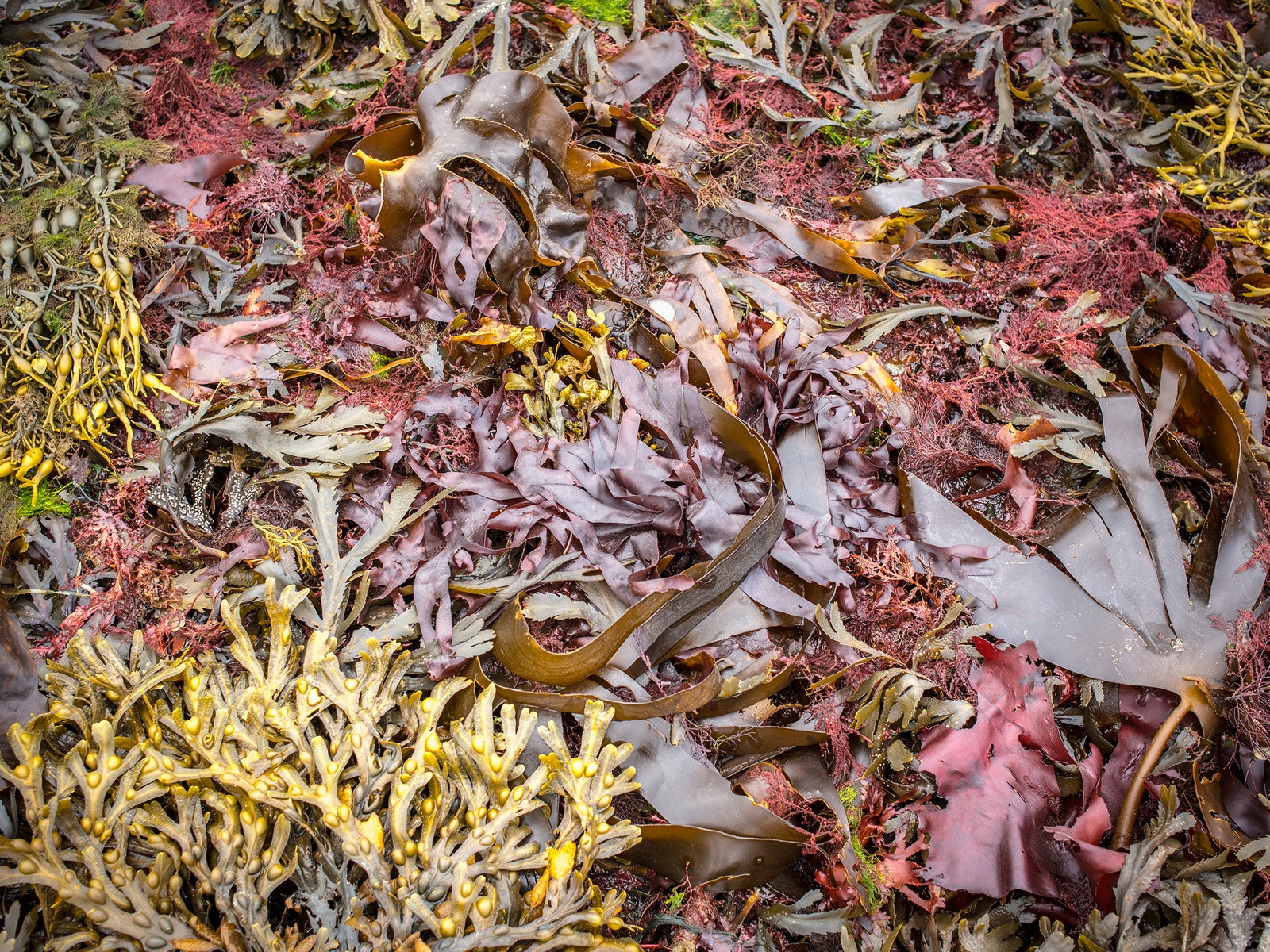If you’re on HealthTok, you may have noticed a buzz around sea moss, sea kelp, or brown seaweed, which has become the latest “superfood” to capture the attention of wellness enthusiasts. Historically, seaweed has been used in indigenous medicine for a variety of ailments; today, you can purchase it in capsules, powders, and teas.
There is some science to back up bladderwrack’s more hyperbolic health claims. However, given some of the risks associated with consuming unregulated algae-derived products, you will probably be better off improving your diet in general. We break it down for you here. Interested in more wellness research? Don’t forget to check out our advice for living forever in Silicon Valley and whether you should apply snail mucus to your face (you probably should).
Power up with unlimited access to WIRED. Get best-in-class reporting that’s too important to ignore for just $2.50 $1 per month for 1 year. Includes unlimited digital access and exclusive subscriber-only content. Subscribe Today.
What Is Bladderwrack?
Photograph: Brook Science Photo Library/Getty Images
“Bladderwrack is a brown seaweed in the genus Fucus that grows in the intertidal regions of temperate areas,” says Loretta Roberson, an associate scientist at the University of Chicago’s Marine Biological Laboratory. “You can find it here in the United States and in Europe—Ireland to England—and most places on that same latitude.” The name comes from the air-filled sacs, or “bladders,” on the seaweed’s thallus. These teeny bladders help the plant float and stay closer to sunlight for photosynthesis.
Bladderwrack’s medicinal use dates back for centuries. “There was actually a large seaweed industry [in North America] where people would collect big wagonfuls of seaweed, and they would use it for a bunch of different purposes,” Roberson says. Indigenous peoples used it for poultices and teas, and by the early 1800s, it gained a reputation as a remedy for goiter—a swelling caused by thyroid issues. By the 1860s, it was promoted as a metabolism booster and treatment for obesity. Today, bladderwrack is available in various forms, from dried and powdered to capsule supplements and teas.
Why Would You Take Bladderwrack?
Bladderwrack supplements make bold claims: weight loss, glowing skin, thyroid support, and more. Some of the most common reasons why people take bladderwrack include:
- It can help alleviate gastroesophageal reflux disease (GERD) symptoms. Bladderwrack contains alginic acid, which, when combined with magnesium carbonate, may relieve symptoms of GERD. This combination forms a barrier that protects the stomach lining from irritants, potentially reducing inflammation and heartburn.
- It can relieve constipation and diarrhea. Alginic acid also promotes smoother digestion.
- It can help soothe digestive irritation. The mucilage in bladderwrack—a gel-like substance—can benefit individuals with gastritis or indigestion by coating irritated mucous membranes along the digestive tract.
What Does the Science Say?
Bethany Marie Doerfler, a gastrointestinal specialist at Northwestern Medicine, says the touted health benefits are tied to bladderwrack’s antioxidant properties, but there have been very few studies evaluating its efficacy or safety in humans.
Like many seaweeds, bladderwrack is packed with antioxidants, including phenolics, phlorotannins, fucoxanthin, alginic acid, fucoidans, and small amounts of vitamins A and C. Doerfler points to alginic acid—found in over-the-counter products like Gaviscon Advance—as a compound with proven effectiveness.
“These derivatives are studied and considered safe, unlike bladderwrack supplements, which remain largely unregulated and untested,” Doerfler explains. “People often leap from identifying healthy components to assuming health outcomes, but [bladderwrack supplements] aren’t backed by research.”
Are Bladderwrack Supplements Safe?
Despite the “natural” label often attached to these kinds of supplements, they come with risks. Algae-derived products can accumulate heavy metals like arsenic and mercury from polluted waters, and even low concentrations over time can lead to serious health problems such as nerve damage or kidney dysfunction.
Another concern is the high iodine content in bladderwrack, which can interfere with thyroid function. According to Roberson, in some countries, there are regulations due to high iodine levels, which can affect thyroid health. There are no clear guidelines in the US on how much iodine is safe to consume, and the risks associated with excess iodine remain misunderstood. “We don’t know thresholds, doses, or potential interactions with other medications due to the absence of research,” Doerfler says.
Services Marketplace – Listings, Bookings & Reviews

.jpg)